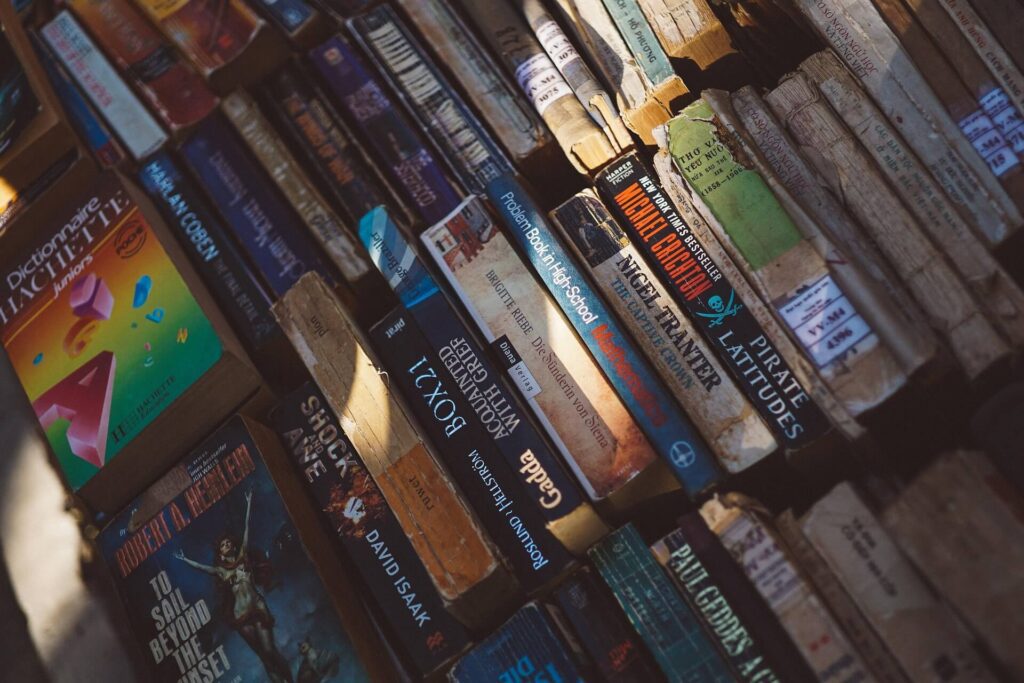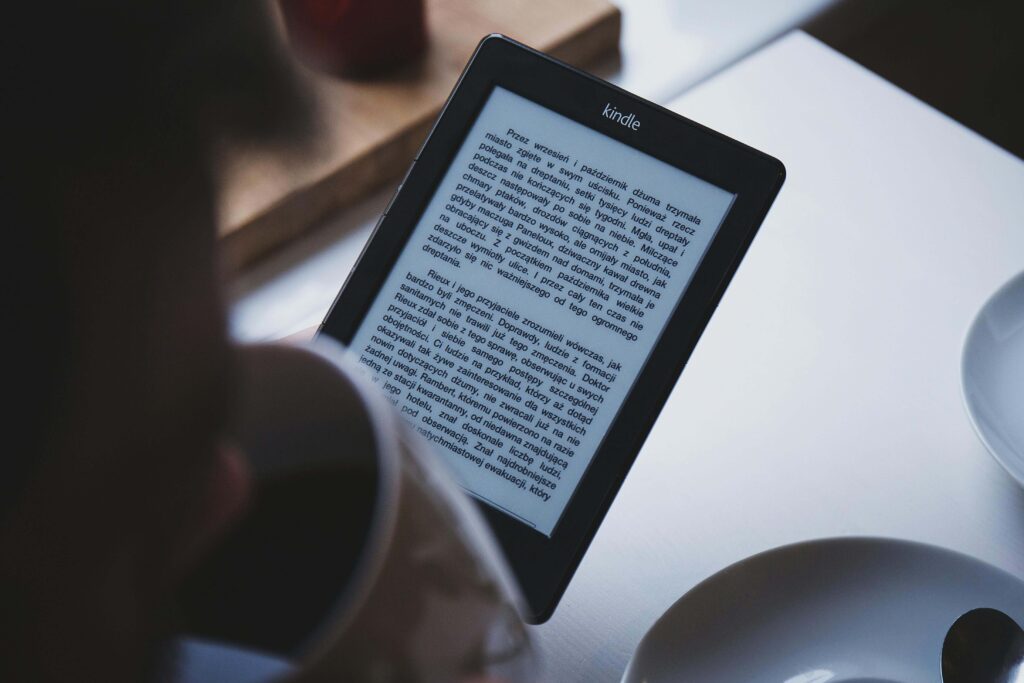
Choosing what to write about is not the first step in writing a novel. It’s the second. If you want to learn how to write a book, you first have to choose a genre.
A genre is your novel’s type or category. It’s like the flavor of a story—it tells you what kind of ride you’re in for before you even turn the first page.
Some stories taste like sweet romance, filled with heartbeats and butterflies. Others come with a twist of mystery, where you’re solving puzzles in the dark with only a flickering flashlight. You might stumble into a world of dragons and spells, zoom into a high-tech future, or get caught in a whirlwind of suspense that keeps your heart racing.
Genre is the vibe, the mood, the kind of adventure you’re signing up for. It’s the story’s identity—and it sets the tone for everything that follows.
Without a clear genre, your story might feel like a road trip without a map. You could start out writing a slow-burning love story, only to suddenly veer into alien invasions or courtroom drama without warning. That might sound exciting—but to readers, it’s confusing.
“Even the wildest mashups usually know what shelf they’d sit on in a bookstore.”
Genre gives your story structure. It’s the promise you make to your audience, whispering, “This is what you’ll get if you stick with me.”
That doesn’t mean you can’t be creative or mix things up—plenty of great stories bend the rules. But even the wildest mashups usually know what shelf they’d sit on in a bookstore. That’s the power of genre: it anchors your imagination so your ideas can fly without getting lost.
So before you dive into plots, characters, or clever dialogue, ask yourself: What kind of story am I telling? Because once you choose the flavor, everything else—every scene, twist, and line of dialogue—can be stirred to match.
Which Genre Tastes Right for You?
here are some of the most popular genres you’ll find on bookshelves (and in readers’ hearts), each with its own distinct flavor and feel:
| Genre | What It Feels Like |
| Romance | Like warm cocoa on a rainy day—comforting, emotional, and often full of butterflies. |
| Mystery | A locked room and a ticking clock—clues, red herrings, and an itch to solve the puzzle. |
| Thriller | A rollercoaster in the dark—fast-paced, high-stakes, and full of suspense. |
| Fantasy | Like stepping through a magical wardrobe—mythical creatures, epic quests, and wonder. |
| Science Fiction | A time machine to tomorrow—futuristic tech, strange worlds, and big “what ifs.” |
| Historical Fiction | A dusty diary come to life—real events, past eras, and characters who breathe history. |
| Horror | A creak in the floorboards—goosebumps, shadows, and things that go bump in the night. |
| Literary Fiction | A thoughtful walk through a quiet forest—deep, introspective, and beautifully written. |
| Adventure | A backpack, a map, and the open road—danger, discovery, and wild, thrilling journeys. |
| Comedy | A pie to the face and a wink—light-hearted, quirky, and meant to make you laugh. |
| Coming-of-Age | Like finding your reflection for the first time—growth, change, and emotional depth. |
Each genre gives you a different set of tools to work with—tropes, pacing, tone, and even typical character types. It also helps you figure out what your readers are expecting, which is essential when figuring out how to write a novel. Romance readers want sparks to fly. Mystery readers want puzzles. Sci-fi fans want to be transported.
But here’s a little secret: your story doesn’t have to live in just one genre. You can blend them, layer them, even twist them. A sci-fi romance? Totally a thing. A historical fantasy? Readers eat that up. Just make sure the main flavor—the one that carries the strongest taste—stays clear from start to finish.
Because when you know your genre, your novel doesn’t just tell a story—it knows how to be a story.
So how do you choose a genre for your novel?
Start by listening to the kind of stories your heart already beats for. Every writer is first a reader, and the stories that keep you turning pages late into the night are usually a great clue about where your storytelling soul wants to go.
If you’re not sure, ask yourself what kinds of books (or even movies and shows) you gravitate toward.
Do you binge detective series like Sherlock or Knives Out? Mystery might be your genre. Do you get giddy over star-crossed lovers and emotional rollercoasters? You’re probably drawn to romance. Or maybe you geek out over spaceships, AI, or alternate universes—hello, science fiction.

TIP 1: Write What You Love to Read
This classic advice sticks around for a reason.
In a Writer’s Digest article, author Jaclyn Goldis highlights the significance of making the writing process enjoyable, saying “I deeply believe that the more fun I’m having, the more successful I will be.”
Passion fuels perseverance. You’re more likely to power through writer’s block if you actually enjoy the world you’re building.
Take Sarah J. Maas, for example. She was a huge fan of fantasy as a teen—and now she’s a global bestselling author of fantasy-romance books like Throne of Glass and A Court of Thorns and Roses. Her love for magical realms shows on every page.
TIP 2: Pay Attention to the Questions That Excite You
Genres are also shaped by the questions you want to explore.
- Mystery asks: What really happened—and why?
- Romance asks: Will they end up together?
- Sci-Fi asks: What if the future looked like this?
- Fantasy asks: What if magic were real?
- Horror asks: What’s lurking in the dark—and can we survive it?
If your brain keeps returning to certain types of “what if” questions, that’s a strong hint about your natural genre.
For example, Margaret Atwood didn’t set out to write just dystopian fiction—she asked, What if the government took total control of women’s bodies? That question led to The Handmaid’s Tale.
TIP 3: Know Your Main Character’s Journey
Your genre often reveals itself when you look closely at your protagonist’s arc.
- If your main character grows up and figures out who they are, that smells like Coming-of-Age.
- If they’re trying to unmask a killer or find the truth, Mystery is on the table.
- If they fall in love while overcoming inner fears, you might be in Romance territory.
The genre is the road they’re walking. Their internal conflict is the why, but the genre shapes the how. It decides whether that growth happens in a small-town high school, a haunted Victorian mansion, or on a spaceship headed for Mars.
Think of your protagonist’s journey like a recipe. The inner transformation is the core ingredient—maybe it’s courage, self-love, or redemption. But the genre is the spice that flavors it.
“Passion fuels perseverance. You’re more likely to power through writer’s block if you actually enjoy the world you’re building.”
A character learning to trust others could happen in a gritty thriller, a magical fantasy, or a heartfelt contemporary romance—each version feels completely different because of the genre’s tone, stakes, and setting.
In other words, don’t just ask what your character wants. Ask how they’re going to get there—and what kind of world they’ll walk through to do it. That’s where genre steps in and says, “Let me take it from here.”
TIP 4: Explore Genre Expectations (Then Decide to Follow or Subvert Them)
Every genre has its “rules” or reader expectations. Not to limit you—but to help you know what game you’re playing.
For example:
- A romance usually centers on a relationship and ends on a hopeful note.
- A mystery must provide clues so readers can solve the case (no unfair twists).
- A thriller often includes time pressure, danger, and lots of tension.
Readers feel cheated if a mystery doesn’t solve the case, or a romance ends with the couple breaking up for no reason. That’s why understanding these rules is important—even if you plan to break them.
In fact, studies show that readers are more satisfied when stories deliver on the emotional beats they expect from a genre.
TIP 5: Try “Genre Journaling”
Here’s a fun creative exercise. Each day for a week, jot down:
- A story idea in a different genre
- A possible main character
- A setting
- A central conflict

After the week’s up, look back. Which one sparked the most excitement? Which story did you keep daydreaming about even when you weren’t writing?
Your genre might not be something you choose once and never touch again. It can evolve. It can shift. But starting with the right one helps you build a story that doesn’t lose itself halfway through.
Genre is your compass. It helps you head in the right direction while still giving you room to wander, discover, and surprise yourself.
Choose a genre not because it’s trendy or marketable, but because you would love to live in that story for the next few months (or years). After all, if you’re going to be the tour guide, you might as well love the journey.
Once you’ve picked your genre, the next step is to start shaping your plot. But that’s a story for another day. In the meantime, feel free to explore our other articles for more tips on writing books and creating standout online content.





Pingback: The Elements of a Novel | How to Write a Book for Beginners